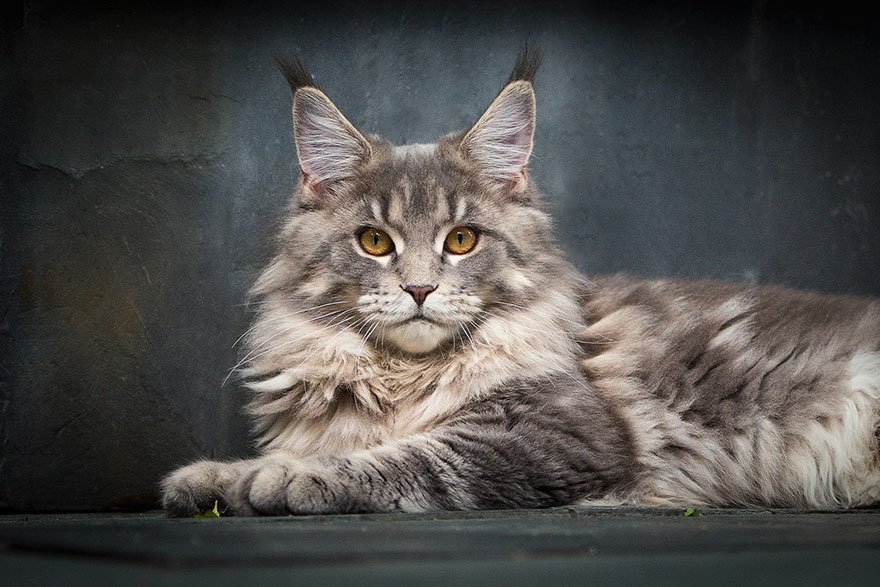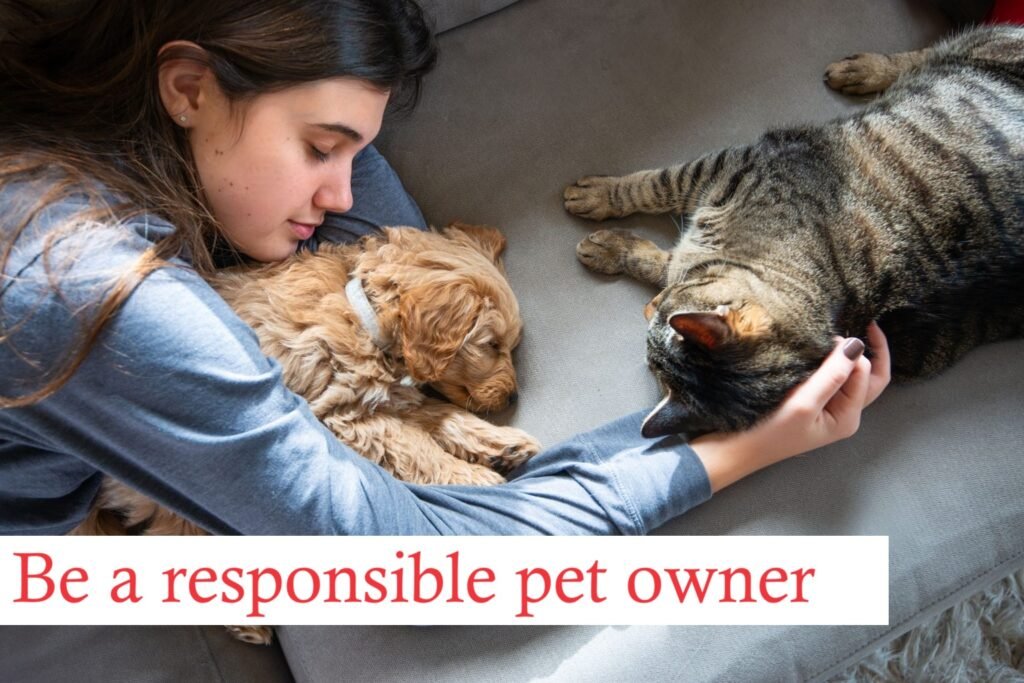In the world of domestic cats, the Maine Coon stands out as one of the largest, most charismatic, and affectionate breeds. Known for their impressive size, friendly nature, and luxurious fur, Maine Coons are a favorite among cat lovers. This guide delves into everything you need to know about this magnificent breed, including their history, appearance, temperament, care needs, and common health issues.
| Characteristic | Comprehensive Details |
| Size & Weight | Large |
| Coat Type | Long, Silky, Dense, Water-resistant |
| Coat Colors | Wide range including tabby patterns, solid colors, and more |
| Eye Color | Large, Expressive, Copper or Green |
| Temperament | Friendly, Affectionate, Social, Playful |
| Body Structure | Muscular, Broad chest, Large paws |
| Health Concerns | Prone to HCM, Hip dysplasia, Obesity |
| Life Expectancy | 12-15 years with proper care and vet check-ups |
A Brief History of the Maine Coon Breed
The Maine Coon’s origins are shrouded in mystery and folklore, but it is widely believed that the breed originated in the United States, specifically in Maine, where it is the state’s official cat. The breed’s history dates back to the 19th century, and it is thought to have descended from long-haired cats brought over by early sailors or from domestic cats bred with large, long-haired breeds from Europe. Despite the various theories, the Maine Coon has become one of the most popular and well-loved cat breeds in the world.
Physical Characteristics
Size and Weight:
Maine Coons are among the largest domestic cats. Adult females typically weigh between 8 and 12 pounds (3.6 to 5.4 kg), while males can weigh from 13 to 18 pounds (5.9 to 8.2 kg) or more. Some males can even exceed 25 pounds (11.3 kg). Their growth can continue until they are about 4 years old.
Coat and Color:
Maine Coons have a long, flowing coat that is dense and water-resistant. Their fur consists of a soft undercoat and a coarser topcoat. The breed comes in a wide range of colors and patterns, including solid colors, tabby patterns, and more. The most common pattern is the classic tabby, but Maine Coons can be found in almost every color and pattern. According to the CFA (Cat Fanciers’ Association), popular colors include brown tabby, black, and blue, with various patterns such as mackerel, classic, and spotted.
Eyes:
One of the most striking features is its large, expressive eyes. These cats typically have copper or green eyes that contribute to their captivating and gentle appearance. The breed’s eye color can range from gold to green, but copper and green are the most common.
Temperament and Behavior
Friendly and Affectionate:
Maine Coons are renowned for their friendly and sociable nature. They enjoy being around people and are known for their affectionate behavior. Often described as “gentle giants,” Maine Coons are great companions for families with children and other pets. They are known to follow their owners around and enjoy spending time with them.
Playful and Intelligent:
Despite their large size, these cats are playful and active. They love interactive toys and enjoy playing games with their owners. Their intelligence makes them easy to train, and they can learn tricks and commands with patience and positive reinforcement. According to a study published in the Journal of Veterinary Behavior, Maine Coons are among the more trainable breeds due to their high intelligence and eagerness to please.
Quiet and Gentle:
Maine Coons are generally quiet cats. They have a soft, chirping voice and are not known for being loud. This gentle demeanor, combined with their affectionate nature, makes them a great choice for people who prefer a quieter pet.
“A Maine Coon’s heart is as big as its paws. These gentle giants bring love and warmth to any home.”
How to Ensure Your Maine Coon Stays Healthy
Grooming Tips:
Maine Coons have a long coat that requires regular grooming to keep it in good condition. Their fur can become tangled or matted if not brushed regularly.
- Brushing: Brush your Maine Coon’s coat at least once a week with a wide-toothed comb or a slicker brush to prevent tangles and reduce shedding.
- Bathing: They generally do not need frequent baths, but an occasional bath can help keep their coat clean. Use a cat-specific shampoo.
- Nail Trimming: Trim their nails regularly to prevent overgrowth.
- Ear Cleaning: Check their ears regularly for dirt and wax. Use a vet-approved ear cleaner if necessary.
Diet and Nutrition:
A balanced diet is essential for maintaining the health of your Maine Coon. They are prone to obesity, so it’s important to monitor their diet and weight.
- Wet Food vs. Dry Food: A combination of wet and dry food can provide a balanced diet and help maintain hydration.
- Portion Control: Measure their food to avoid overfeeding.
- Fresh Water: Ensure they have access to fresh water at all times.
- Treats: Offer treats in moderation to prevent weight gain.
Exercise and Enrichment:
Even though they are not hyperactive, they still need regular exercise to stay healthy and happy.
- Interactive Toys: Provide toys such as feather wands and laser pointers to keep them engaged.
- Climbing Structures: Cat trees and shelves allow them to climb and explore.
- Social Time: Spend quality time with your pet cat to keep them mentally and emotionally stimulated.
“Maine Coons are not just cats; they are family members with paws and a big heart.”
Common Health Issues in Maine Coons
Hypertrophic Cardiomyopathy (HCM):
Maine Coons are prone to hypertrophic cardiomyopathy, a condition where the heart muscle thickens, affecting its ability to pump blood. Regular veterinary check-ups and genetic testing can help manage this condition.
- Symptoms: May include lethargy, rapid breathing, and loss of appetite.
- Treatment: While there is no cure, medication and lifestyle changes can help manage the condition.
Hip Dysplasia:
Hip dysplasia, a genetic condition where the hip joint doesn’t fit into the hip socket properly, can affect Maine Coons. Regular vet visits can help detect and manage this issue early.
- Symptoms: Signs include difficulty walking or climbing stairs.
- Treatment: Treatment may include weight management, medication, or surgery in severe cases.
Obesity:
Due to their large size and lower activity levels, Maine Coons are prone to obesity. Managing their diet and ensuring regular exercise is crucial for their health.
- Prevention: Regular play and a balanced diet can help prevent obesity.
- Management: Consult your vet for a weight management plan if needed.
Lifespan and Quality of Life
Maine Coons typically live between 12 and 15 years, though some can live longer with proper care. Regular veterinary visits, a balanced diet, and a healthy lifestyle contribute to their longevity and quality of life.
- Veterinary Care: Regular check-ups are essential to monitor and address any health issues.
- Dental Health: Routine dental care helps prevent oral health problems.
- Vaccinations: Ensure your Maine Coon is up-to-date on vaccinations to protect against common illnesses.
“A Maine Coon’s love is as enduring as their regal appearance. Give them your heart, and they’ll give you theirs in return.”
Socialization and Training
Early Socialization:
Introducing your pet Maine to various people, environments, and experiences early on is crucial for their development.
- Handling: Gently handle your kitten to get them accustomed to being touched and held.
- Positive Experiences: Create positive experiences with new situations to build their confidence.
Litter Training:
Maine Coons are usually easy to litter train. Ensure their litter box is clean and accessible.
- Litter Box: Keep the box clean and place it in a quiet, accessible location.
- Positive Reinforcement: Reward your kitten for using the litter box correctly.
Behavioral Training:
Maine Coons are intelligent and can learn various tricks and commands.
- Basic Commands: Use treats and praise to teach basic commands like “sit” and “come.”
- Enrichment Activities: Provide interactive toys and puzzles to keep their minds sharp.
Living Standard of Maine Coon Cats
Home Environment:
Maine Coons adapt well to different living environments, from apartments to larger homes. Ensure your home is safe and cat-friendly.
- Safety: Secure windows and balconies to prevent accidents.
- Space: Provide ample space for your cat to move and explore.
Compatibility with Other Pets:
Maine Coons generally get along well with other pets.
- Introduction: Introduce new pets slowly and monitor their interactions.
- Supervision: Supervise initial interactions to ensure everyone gets along.
Where to Adopt or Purchase a Maine Coon
From Breeders:
If you decide to purchase a Maine Coon from a breeder, choose a reputable one who adheres to ethical practices.
- Health Records: Ensure they provide health records and genetic testing.
- Visit: Visit the breeder’s facility and meet the kittens and their parents.
- Contract: Look for a written health guarantee and contract.
The cost of a Maine Coon kitten varies from $800 to $3000, depending on factors like pedigree and color.
Adoption From a Shelter:
Adopting a pet cat from a shelter or rescue organization is a great option.
- Shelters: Check local shelters and rescues for Maine Coons available for adoption.
- Rescue Groups: Look for breed-specific rescue groups that focus on Maine Coons.
Final Thoughts
The Maine Coon is a majestic and loving breed known for its large size, friendly demeanor, and beautiful appearance. With proper care, grooming, and attention, Maine Coons can be wonderful companions for many years. Whether you choose to adopt or purchase one, this breed’s charm and affectionate nature make them a delightful addition to any home.



